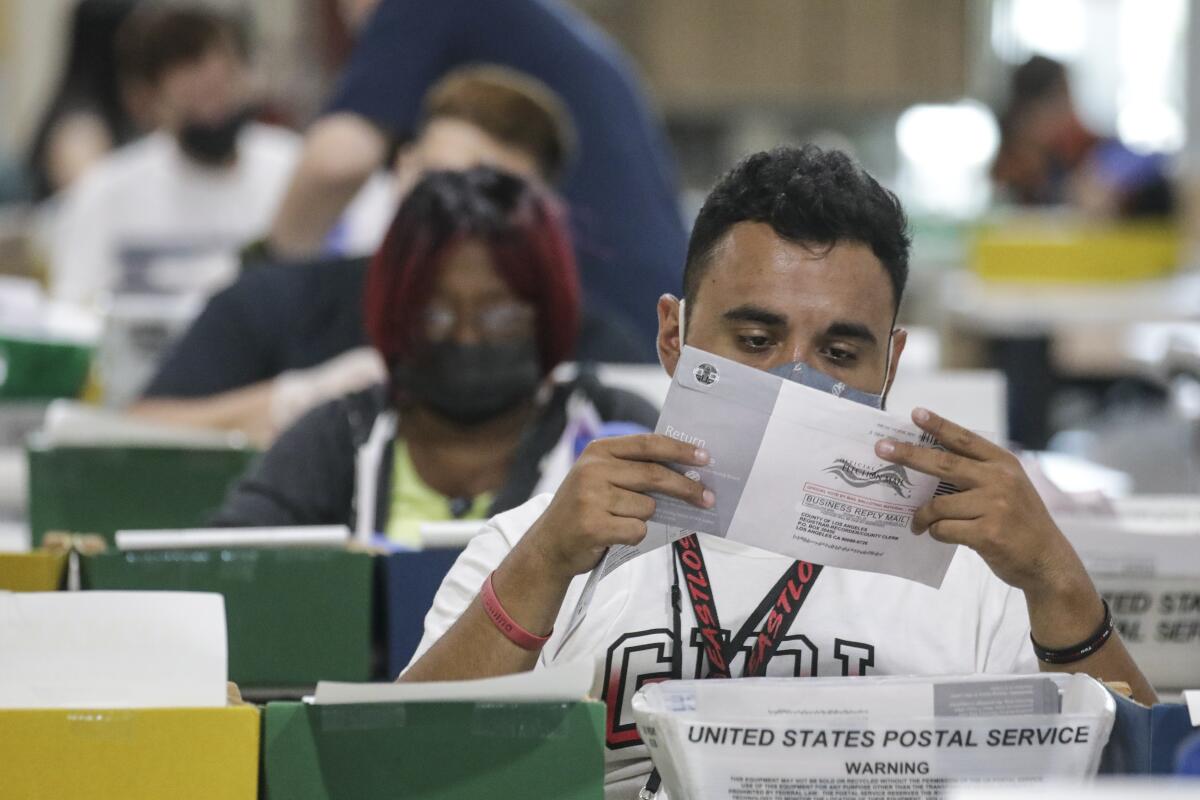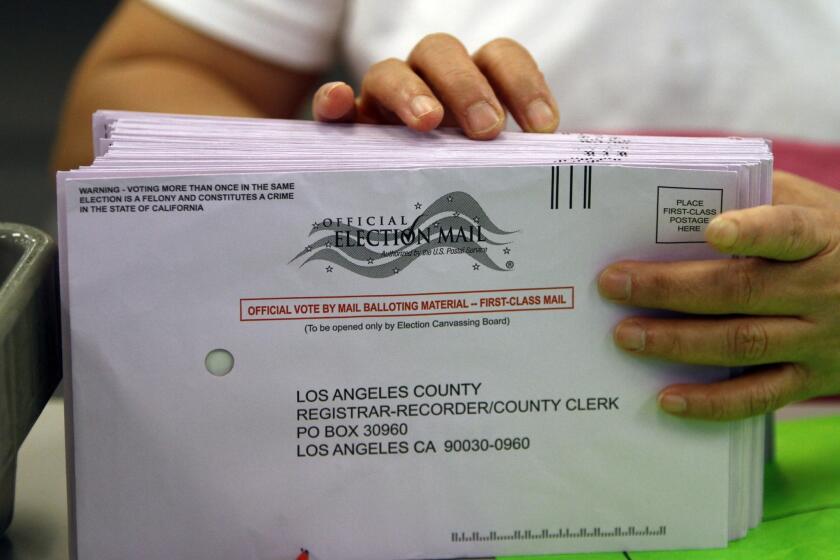Editorial: California’s election results require patience. That’s a good thing.

Perhaps you opened the Wednesday newspaper or clicked through The Times’ website hoping to find the results of Tuesday’s general election. And who could blame you?
There have been months of lead-up to “election day,” with much prognostication and anticipation, because this is a balance-shifting election. The stakes are enormous: a new mayor for Los Angeles, possibly a new sheriff for Los Angeles County, transformative statewide ballot measures and control of the U.S. House and Senate.
But we may have to wait awhile until all the ballots are counted to find out results, particularly in Los Angeles and California. Clear outcomes could be days, even weeks, away.
The state has made major changes in recent years to make it easier and more convenient to vote. But making sure everyone who wants to vote can do so slows the counting process. Every registered, active voter is mailed a ballot. They can vote in person, submit their ballot at an official drop box or polling place before the last day of voting, or they can mail their ballot, as long as it’s postmarked before 8 p.m. on the final day of voting and received within seven days. California even allows people to register and cast a conditional ballot on election day.
The COVID-19 pandemic forced California to fast-track its plans to move to universal mail balloting. No reason to backtrack now.
That means that election workers will continue to count and verify ballots over the next several days. In fact, election night was simply when the first batch of results was released. Some pundits and media outlets may have chosen to “call” a particular race for a candidate based on early returns — and that may be possible in landslide situations. But in Los Angeles and California, where more than 80% of ballots are cast by mail, it’s irresponsible to declare a close race settled so quickly.
Just look at the June 7 primary. The day after the polls closed, Los Angeles mayoral candidate Rick Caruso had a strong lead. That led plenty of pundits to speculate that the apparent win of the billionaire Republican-turned-Democrat who pledged to get tough on crime was evidence of a “progressive backlash” in liberal cities.
But those election night returns were a fraction of the votes cast. After all the ballots were counted, Rep. Karen Bass led Caruso by 7 points and progressive candidates ended up gaining in many local races.
The editorial board, which is part of the Opinion section and separate from the newsroom, endorses in select races. Here’s how we make our decisions.
That wasn’t the only race to flip during the primary. On election night, it looked as though incumbent City Councilmember Gil Cedillo was on his way to reelection, but when the election results were certified on July 1, policy advocate Eunisses Hernandez ended up winning with 54% of the vote.
In the San Fernando Valley’s 20th state Senate District, it looked like Daniel Hertzberg, son of the current officeholder Bob Hertzberg (who is running for L.A. County supervisor), would face a Republican candidate and an easier path to victory in the largely Democratic district. But the final results had Democrat Caroline Menjivar in second place, leading to a competitive runoff between the two candidates.
This same dynamic played out in the 2018 midterm election when the “blue wave” resulted in the GOP losing several seats in California. Early returns had Republican candidates winning in some races, but shifting to Democrats after all the ballots were counted. At the time, some Republicans suggested that the reversal of fortune was an indication of some type of election misconduct. It wasn’t, but merely the state ensuring that every vote gets counted.
Recent polls suggest the runoff between Bass and Caruso was neck and neck on election day. If so, that means we won’t know for sure who will be L.A.’s next mayor for the days or even weeks it takes to count every ballot legitimately cast. There will surely be other races too close to call quickly. And that’s OK. By now, Californians should know that waiting for election results is the healthy outcome of prioritizing access and accuracy over speed.
More to Read
A cure for the common opinion
Get thought-provoking perspectives with our weekly newsletter.
You may occasionally receive promotional content from the Los Angeles Times.











